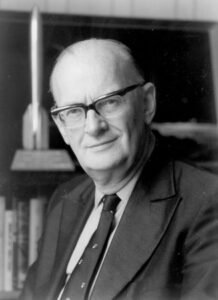Books By Arthur C. Clarke
- Prelude to Space (1951)
- The Sands of Mars (1951)
- Islands in the Sky (1952)
- Against the Fall of Night (1953)
- Childhood’s End (1953)
- Earthlight (1955)
- The City and the Stars (1956)
- Expedition to Earth (1956)
- Reach for Tomorrow (1956)
- The Deep Range (1957)
- The Other Side of the Sky (1958)
- Tales from the White Hart (1957)
- A Fall of Moondust (1961)
- From the Ocean, From the Stars (1961)
- Dolphin Island (1963)
- Glide Path (1963)
- 2001: A Space Odyssey (1968)
- The Lion of Comarre & Against the Fall of Night (1968)
- Prelude to Mars: An Omnibus Containing the Complete Novels Prelude to Space and The Sands of Mars (1968)
- An Arthur C. Clarke Omnibus: Time’s Eye, The Light of Other Days, and Childhood’s End (1969)
- The Lost Worlds of 2001 (1972)
- Rendezvous with Rama (1973)
- Imperial Earth (1975)
- The Fountains of Paradise (1979)
- The Ghost from the Grand Banks (1990)
- 3001: The Final Odyssey (1997)
- The Trigger (1999)
- The Light of Other Days (2000)
- The Last Theorem (2008)
About Arthur C. Clarke
 Arthur C. Clarke, born on December 16, 1917, was a British science fiction writer, futurist, and inventor, widely regarded as one of the most influential figures in the genre. Clarke’s works often explored visionary concepts and technological advancements, earning him the nickname “Prophet of the Space Age.” His imagination, combined with a profound understanding of science, propelled him to prominence in the literary world.
Arthur C. Clarke, born on December 16, 1917, was a British science fiction writer, futurist, and inventor, widely regarded as one of the most influential figures in the genre. Clarke’s works often explored visionary concepts and technological advancements, earning him the nickname “Prophet of the Space Age.” His imagination, combined with a profound understanding of science, propelled him to prominence in the literary world.
Clarke’s writing career spanned over six decades, during which he authored numerous novels, short stories, and essays that captivated readers with their thought-provoking themes and imaginative scope. Among his most celebrated works is “2001: A Space Odyssey,” a collaboration with filmmaker Stanley Kubrick, which not only became a classic of science fiction literature but also a groundbreaking film.
Throughout his life, Clarke’s fascination with space exploration and the possibilities of human advancement remained central to his writing. His novels often depicted humanity’s encounters with extraterrestrial life, the exploration of distant planets, and the evolution of technology far beyond what was then conceivable.
In addition to his contributions to literature, Clarke was known for his predictions about the future of technology, many of which have since become reality. He proposed ideas such as geostationary satellites for telecommunications, a concept that paved the way for modern communication systems.
Beyond his literary achievements, Clarke was a respected figure in scientific circles, advocating for space exploration and promoting scientific literacy among the general public. His legacy continues to inspire writers, scientists, and dreamers worldwide, as his visionary imagination and unparalleled contributions to both science fiction and scientific discourse endure as a testament to his lasting impact on the genre and the world at large.

